- Home
- Keith Douglass
Carrier - Joint Operation Book 16
Carrier - Joint Operation Book 16 Read online
book sixteen
CARRIER JOINT
Operations
KEITH DOUGLASS
JOVE BOOKS, NEW
If you purchased this book without a cover, you should be aware that this book is stolen property. It was reported as "unsold and destroyed" to the publisher, and neither the author nor the publisher has received any payment for this "stripped book."
This is a work of fiction. Names, characters, places, and incidents are
either the product of the author's imagination or are used fictitiously,
and any resemblance to actual persons, living or dead, business
establishments, events, or locales is entirely coincidental.
CARRIER JOINT OPERATIONS
A Jove Book / published by arrangement with the author
PRINTING HISTORY
Jove edition / December 2000
All rights reserved.
Copyright 2000 by Penguin Putnam Inc. This book, or parts thereof, may not be reproduced in any form
without permission. For information address The Berkley Publishing Group,
a division of Penguin Putnam Inc., 375 Hudson Street, New York, New York 10014.
The Penguin Putnam Inc. World Wide Web site address is http//www.penguinputnam.coin
'ISBN 0-515-12975-5
A JOVE BOOK
Jove Books are published by The Berkley Publishing Group,
a division of Penguin Putnam Inc., 375 Hudson Street, New York, New York 10014.
JOVE, and the "J" design are trademarks belonging to Penguin Putnam Inc.
PRINTED IN THE UNITED STATES OF AMERICA
10 987654321
Flight Deck
Chinese vessel Rising Sun
0600 local (GMT-10)
The stars had already faded by the time Ishi Zhaolong started his morning routine. He trotted across the flight deck, heading for the starboard torpedo tubes, his maintenance instructions in his hand.
The cargo area, he reminded himself. Not a flight deck-not on this ship. At least not yet. Soon enough.
The eighty-four-thousand-ton ship had spent the last four weeks at sea, transiting the Pacific Ocean from her home port in Guaydong Harbor to this point two hundred miles due west of Hawaii. So far, other than the warmer weather and the afternoon rains that were becoming predictable, one piece of ocean looked pretty much like the next.
Still, the warmer weather was a relief. It was hard enough to maintain the illusion of being a merchant ship, doing maintenance on the aircraft hidden beneath the massive metal shrouds, keeping the rest of the flight deck in decent condition, conducting the covert weapons drills and emergency drills that were part of life at sea-and all while pretending to be a normal merchant ship.
Granted, all of them had had more experience on merchant ships than on aircraft carriers. The Rising Sun was the first-perhaps the first of many-but the first nonetheless. The massive ship had been built originally as one of the Soviet Union's first aircraft carriers. When international money problems made the Russians eager for hard currency, China had been able to pick up the rusting hulk for a pittance, albeit a pittance paid in American dollars funneled back through China's lucrative traffic in heroin.
No steam catapults, limited repair facilities, and a main propulsion system that was far more comfortable at ten knots than combat speeds, the Rising Sun was home to eighty Harrier VSTOL fighter/attack aircraft as well as a vertical launch missile system installed just aft the island. Silkworms, anti-air batteries, and armament for the aircraft completed her weapons loadout.
And the crew. Most of them were from the Chinese Navy, although their experience had been limited to smaller combatants and amphibious warfare ships. A relatively large contingent from the Air Force brought their experience in flight operations to the ship, along with a measure of Army personnel just for good measure. All in all, there wasn't a branch of the military inside China that was willing to miss out on the first deployment of this particular Trojan Horse.
Especially the Army. For decades, they'd set their sights on an amphibious landing on Pearl Harbor. This time, they'd have their chance.
Ishi pulled back a tarpaulin to reveal a steel tube three meters long and one meter in diameter. He knelt down next to it and checked the high-pressure air hose leading into it. During this combination shakedown cruise and first deployment, they'd discovered that the hoses that
had been installed had a tendency to crack in cold weather, and the first half of the deployment they'd lost around half of their exterior fittings. Ishi held out no hope that the hoses would fare any better in the warmer waters off Hawaii.
The high-pressure air system was an essential part of this combat system. It was one of the most unsophisticated systems onboard, and yet well might prove to be the most critical of all. Ishi bled off air into the system, then fired an air slug out of it. He saw the surface of the ocean ripple in response.
Russia had been grateful for the hard currency-grateful, yet uneasy. Her own relationship with China was fraught with turmoil, and she had no desire to have her neighbor too heavily armed. Yet the Chinese had been insistent that the aircraft carrier must be delivered with complete and operable weapons systems.
There'd been a compromise, and the ancient cracking air hoses were just one part of it. Russia had substituted a number of older, less-efficient combat systems for the more modern ones on her own ships, particularly in the area of antisubmarine warfare. The tube that Ishi was servicing was a surface-launched torpedo tube that expelled its warhead with a mass of compressed air, with the initial guidance provided by a relatively deaf but generally reliable sonar system. ASW had been Russia's particular concern, since she maintained the largest diesel and nuclear submarine fleets in the world.
Ishi's nimble fingers probed the edges of the joint between the rubber tube and the torpedo launch tube. It felt solid, secure, with no evidence of corrosion or leaking. He reached up to the housing of the surface launch torpedo tube and cracked the air valve open. He could hear it hissing into the tube, pressurizing it, but not a trace escaped from the joint.
Satisfied, he turned the compressed air off and pulled out the maintenance form from the front pocket of his coveralls. He noted the date, the time, and then checked off the box that indicated the system was functioning optimally. He scrawled his initials in the signature box, then neatly folded the form and tucked it back inside his pocket.
Submarines. His blood ran cold at the thought. The American submarines were particularly hard to locate and track, or so he'd been told by the more senior technicians. What exactly it was that made them such difficult targets, he didn't know, but they'd repeatedly told him about the masses of submarines that circled like hawks around the outer perimeter of the largest islands in the chain. They'd have one chance, and only one, to get a weapon in the water and on target before themselves coming under devastating attack from the American submarines. One chance.
Well, as far as Ishi was concerned, one chance would be enough. He stood up and leaned against the torpedo tube for a moment. He hoped when the time came, that he'd kill many American submarines. He'd be standing here, fueling torpedoes and loading them into the tube as fast as he could when the time came. And despite the cautionary words from the others, he was pretty sure the American submarines weren't all that invulnerable to twenty pounds of high-explosive warhead detonating against their hulls.
He could see the other Chinese merchant ships barely visible on the horizon. While his own ship was outfitted to carry jump jets, the others had different roles. One, for instance, supposedly carried liquid natural gas or oil. But she actually had a series of vertical launch tubes for missile sh
ots built into her deck. Most of the rest of the ship was loaded with sand in order to make her ride low in the water, as though she were loaded with cargo.
Even further to the south, a third ship that appeared to be a roll-on roll-off, a RO-RO, actually carried two divisions of Chinese troops. The ship itself was a shallow draft vessel built to come in close to the beach, drop down a well deck door, and discharge a small armada of troop transport vessels.
The carrier's disguise was elegant and would take only minutes to remove. Outwardly, she appeared to be a simple merchant vessel.
"My aircraft-is it ready?" The cold tones immediately told Ishi who the speaker was.
Commander Chan Li had approached so softly that Ishi hadn't heard him. Ishi swung around in terror.
The commander was a tall man, sleek with muscles bulging under the smooth green fabric of his flight suit. He usually looked as though someone was about to commit a grievous sin that would, unfortunately, require him to take direct and personal action to correct the wrongdoer. It was the eagerness that particularly bothered Ishi, a sense that if severe, even brutal punishment were required, Chan would enjoy it far too much. He shivered at the possibility of ever giving Chan reason to reprove him.
Had life been fair, Chan would never have been asking Ishi the question. Torpedoes, sonar gear, those matters encompassed Ishi's training, knowledge and responsibility. He knew a bit about the aircraft, as did everyone on the ship, mostly from whispered conversations in the berthing areas from those who did work on them. And what he heard was not entirely good.
But Chan would expect him to have an answer. Demand it, even. To the commander, the enlisted men were interchange able cogs onboard the ship, each one having no other purpose than to ensure that Chan's life went
smoothly and his expectations were met. Ishi did not exist for Chan apart from that.
Such arrogance. Such power. Were the American pilots the same? Ishi wondered. Demanding more from their enlisted people than they'd ever expect from themselves, hardly working while the en listed people slaved away on brutal hours and insufficient food?
They must be, Ishi concluded. There was something about flying jets that simply inculcated that air of superiority into any man. Perhaps it was a natural consequence of leaving the earth, soaring in realms that man had never been designed to challenge. Flying created brutal monsters, as far as Ishi was concerned, and he had done his best thus far to stay out of the pilots' paths.
"Yes, sir. All is ready," Ishi answered, aware that any other answer would be followed by more questions. He didn't know the status of Chan's aircraft, but he was willing to bet that his fellow sailors were too terrified to let anything go untouched on it. "All is ready,"
Chan studied him for a moment, and Ishi felt a flash of fear. Surely the man could read through his subterfuge and knew that Ishi was faking it.
"Very well," Chan said finally. "I shall hold you responsible if it is not." Chan studied him for a long moment, as though committing his features to memory, and Ishi felt true terror. If all was not in readiness, Chan would indeed hunt him down on the ship and make him pay for the discrepancies.
USS Centurion 0605 local (GMT-10)
Sonar Technician Second Class Renny Jacobs glanced up at the digital clock for the fourth time in as many
minutes. Enticing odors were wafting around the ship from the galley, and with each fresh spurt of air from the ventilation system, his stomach complained anew. It-was surf 'n turf night, and one deck down and fifty feet aft, the cooks were forking over tender fillets and fishing fresh lobster tails out of the steaming caldrons. Once it looked like everyone was fed, they'd start handing out seconds. And if his relief didn't show up pretty damned soon, Renny was going to be shit out of luck for those as well.
And just where the hell was Otter Pencehavan? And why the hell couldn't he ever be on time for watch relief?
It wasn't like Renny expected Otter to skip chow-hell, no one did that. No, the routine was well established. Otter was supposed to go to early chow, show up in line the moment the chow line opened. Get his food, eat at a reasonable pace, then get his ass up to the Control Room to relieve so that the rest of them could go eat. It wasn't like they could leave Sonar unmanned simply so all the sonarmen could go to chow at the same time.
Sure, they were just off the coast of Hawaii, and they'd just finished REFTRA, the refresher training that was the final evolution before their next deployment. It'd been four long days of drills, emergencies, simulated targets and evasions, the entire crew worn down to a thin nub by the continual clamor of the general quarters alarm. REFTRA was always more intense than an actual deployment ever was.
The skipper hadn't said yet, but Renny knew they'd passed. Passed, and passed with flying colors. It was just something you could tell after a while, watching the inspectors. They'd been impressed, you could see it in their eyes. Sure, they'd find some little shit to gripe about-they had to, didn't they? But it didn't mean much. In the areas that matters, the sub's crew had well and truly nailed the inspectors' collective asses to the bulkhead.
Not that that mattered all that much when you were on the verge of starving to death.
He heard footsteps padding quietly down the passageway, and turned to look up at the hatch. Otter's cheerful, beaming face appeared, followed quickly by the rest of his lanky body. A small smear of melted butter graced one corner of his mouth.
"Good chow," Otter said cheerfully. He slid into the chair bolted to the deck next to Renny. "Primo lobster tails."
"I wouldn't know, asshole." Renny started to embark on another tirade about Otter's timeliness, then thought better of it. It'd just eat up time, and right now there was only one thing Renny wanted to eat up. "I had it, you got it," he continued, in the traditional sailor's shorthand turnover brief.
Otter nodded and slipped on the headphones. "Anything going on?"
Renny pointed out a couple of commercial contacts tracking their ways across his passive acoustics screen, then updated Otter on their latest positions. "Nothing out of the usual," Renny concluded, then slipped his own headphones off in preparation for leaving. "Except one thing."
"What?"
Renny paused for a moment, trying to sort out his thoughts. "Weird noise, like torpedo tubes opening or something. Compressed air, I guess. A mass of bubbles- you could hear them breaking up-then nothing."
Otter shrugged. "Surface pukes venting something, probably."
Renny nodded. "That's what I called it. But I was expecting it to come back. You know how the commercial ships are-they get on a cycle. And it seems to correlate
with that main propulsion system." Renny traced out the acoustic signature with one finger. "Turbine, not a diesel. I couldn't correlate it to any of the known merchant traffic."
"Which means exactly zip," Otter concluded. "Big boy's off schedule, that's all."
"Yeah." Renny could hear the lobster and steak calling to him. "That's probably all it is. Some asshole navigator' s whose got no better time sense than you do."
Flight Deck USS Jefferson 0610 local (GMT-10)
Lieutenant Commander James "Bam-Bam" Flint leaned back in his chair and sighed. The TAO, or tactical action officer, was a big corn-fed blond from Iowa who often found the long hours of sitting in a chair and staring at the screen, waiting for something to go wrong, almost intolerably tame. He'd spent many hours wishing for a longer cord for his headset, or a speaker, or any way that he could pass the watch standing up, pacing, some form of movement that would relieve the kinks and knots that settled into his muscles whenever he held still too long.
Today had been no exception, a relatively quiet day despite the intensive refresher training schedule. The S-3B Viking squadron has just finished a mock torpedo run against an adversary sub played by the USS Centurion, the Navy's lead ship in a new class of attack submarines. The Centurion had been winning until the admiral had finally ordered her to turn on her acoustic augmentation gear to give the Vikings a
fighting chance.
Barn-Bam mentally ran through the remainder of the training schedule for the rest of his watch. Nothing major, nothing even very interesting. The only wild card in the deck was the SEAL team ashore in the mountains of Hawaii, conducting joint training with other service special forces. The carrier was supposed to be standing by to provide support services for the team, but from what he'd seen so far, the SEALs preferred to stay down and dirty on the ground with their own gear.
As the last of the S-3B Vikings pounded down the flight deck, Admiral Everette "Batman" Wayne leaned back in his chair and sighed. Bam-Bam, a Hornet pilot, turned around with a questioning look on his face. "Sir?"
Batman waved one hand idly in the air. "Nothing. Just thinking." He levered himself up from the chair and stretched. "They've done a good job so far. I'll be in the Flag Mess. Call me if anything interesting happens."
"Will do, Admiral." Barn-Bam turned back to the screen. The last S-3B was now showing up as a friendly air symbol on the large blue screen that dominated the port bulkhead.
"What does he mean by interesting?" the watch officer sitting to Bam-Bam's right asked.
"It depends on who the admiral is," the pilot answered. "For some of them, they mean anything that hasn't been choreographed down to the last second of flight cycle time. Micromanagers, you know."
"Like on the Vincennes," the Watch Officer said.
"Exactly. But with Admiral Wayne, it's a little different. He figures if you've passed your TAO test and oral board, you ought to have enough sense to figure it out. It depends on where you are, what's going on in the world, whether we're in the middle of a potentially explosive situation or whether we're cruising off the coast of Hawaii during REFTRA."
"So how do you know when to call him?" the watch
officer asked. "Some of it's an easy call, I guess. You lose an aircraft, have a collision at sea, someone starts shooting at you-that I'd be able to figure out. But how do you decide about the rest of it?"
Movement on the screen caught Bam-Bam's attention, and he leaned forward in his chair, suddenly not particularly interested in carrying on a theoretical watchstand-ing discussion with the junior officer. Adrenaline trickled through his muscles, sweeping away some of the discomfort.

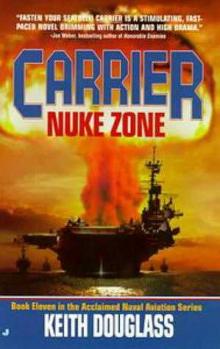 Nuke Zone c-11
Nuke Zone c-11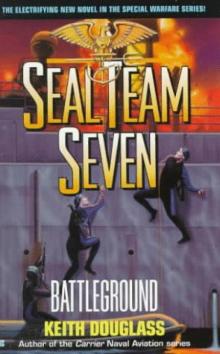 Seal Team Seven 6 - Battleground
Seal Team Seven 6 - Battleground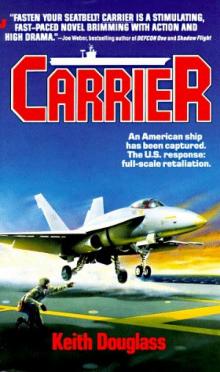 Carrier c-1
Carrier c-1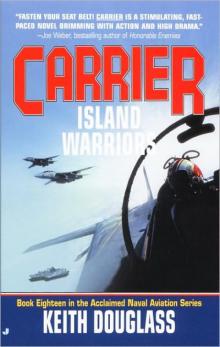 Island Warriors c-18
Island Warriors c-18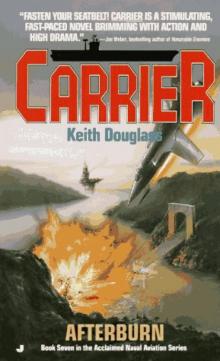 Afterburn c-7
Afterburn c-7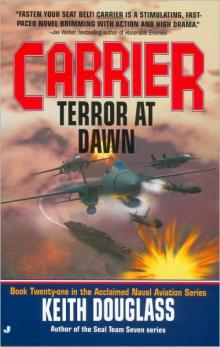 Terror At Dawn c-21
Terror At Dawn c-21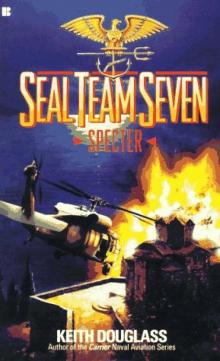 Specter sts-2
Specter sts-2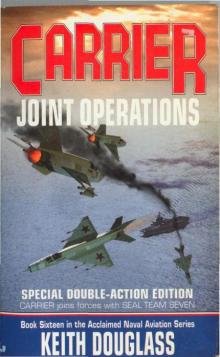 Joint Operations c-16
Joint Operations c-16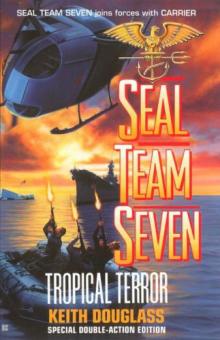 Tropical Terror sts-12
Tropical Terror sts-12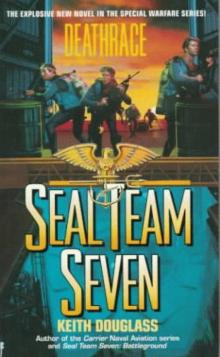 Seal Team Seven 7 - Deathrace
Seal Team Seven 7 - Deathrace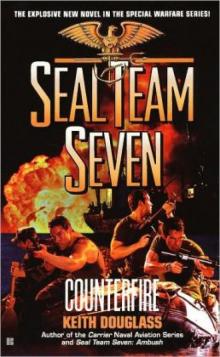 Counterfire sts-16
Counterfire sts-16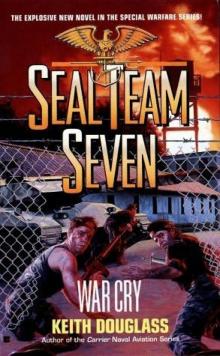 War Cry sts-9
War Cry sts-9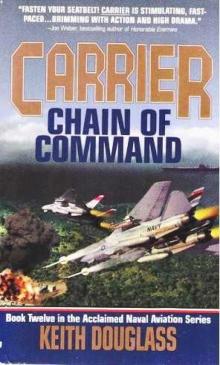 Chain of Command c-12
Chain of Command c-12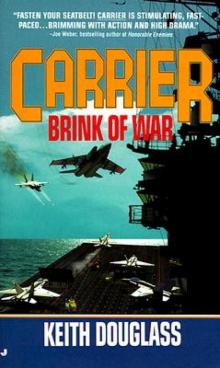 Brink of War c-13
Brink of War c-13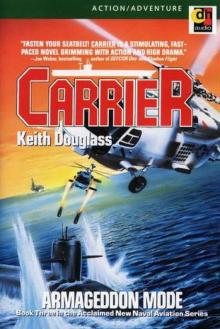 Armageddon Mode c-3
Armageddon Mode c-3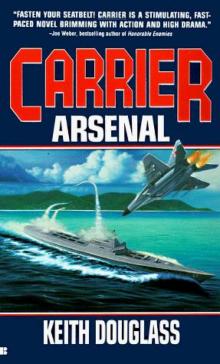 Arsenal c-10
Arsenal c-10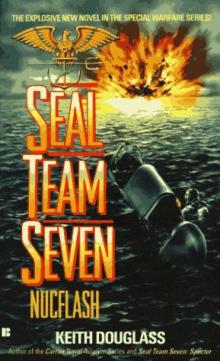 Nucflash sts-3
Nucflash sts-3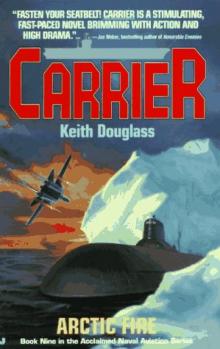 Arctic Fire c-9
Arctic Fire c-9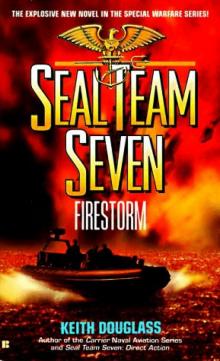 Firestorm sts-5
Firestorm sts-5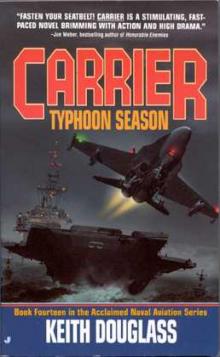 Typhoon Season c-14
Typhoon Season c-14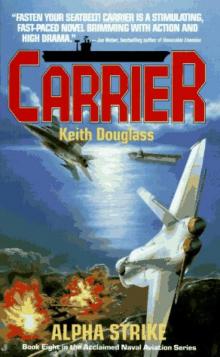 Alpha Strike c-8
Alpha Strike c-8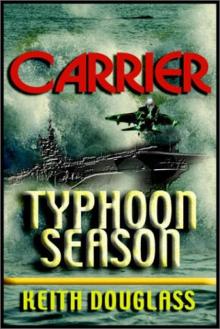 Carrier 14 - TYPHOON SEASON
Carrier 14 - TYPHOON SEASON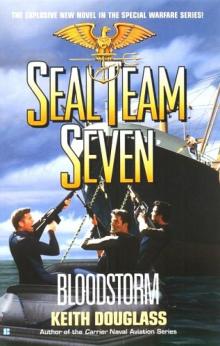 Bloodstorm sts-13
Bloodstorm sts-13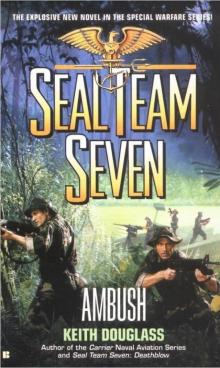 Ambush sts-15
Ambush sts-15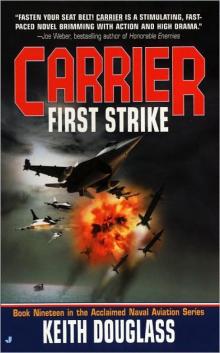 First Strike c-19
First Strike c-19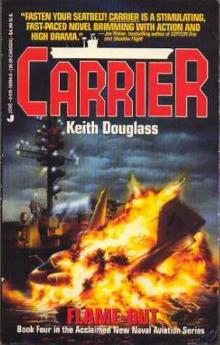 Flame Out c-4
Flame Out c-4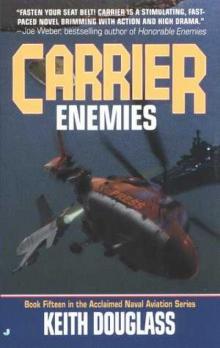 Enemies c-15
Enemies c-15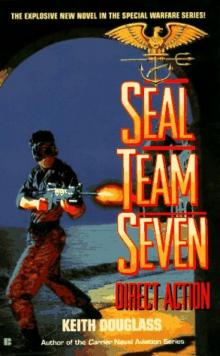 Seal Team Seven 04 - Direct Action
Seal Team Seven 04 - Direct Action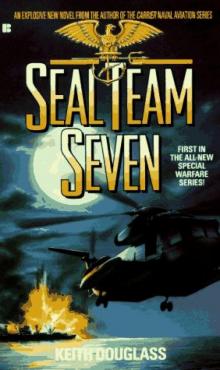 Seal Team Seven 01 - Seal Team Seven
Seal Team Seven 01 - Seal Team Seven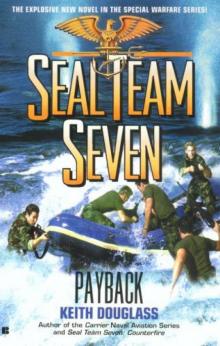 Payback sts-17
Payback sts-17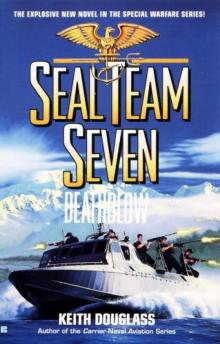 Death Blow sts-14
Death Blow sts-14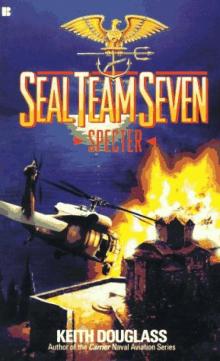 Seal Team Seven 02 - Spector
Seal Team Seven 02 - Spector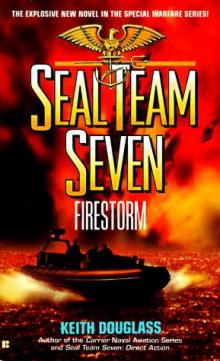 Seal Team Seven 5 - Firestorm
Seal Team Seven 5 - Firestorm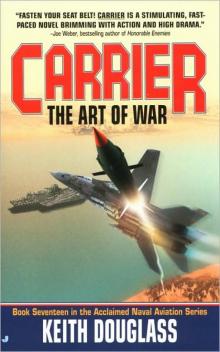 The Art of War c-17
The Art of War c-17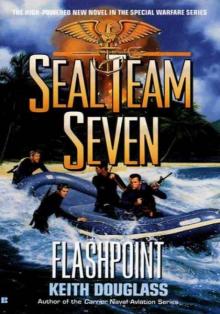 Flashpoint sts-11
Flashpoint sts-11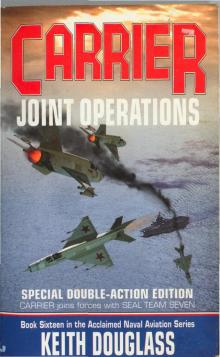 Carrier - Joint Operation Book 16
Carrier - Joint Operation Book 16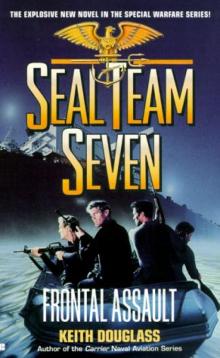 Frontal Assault sts-10
Frontal Assault sts-10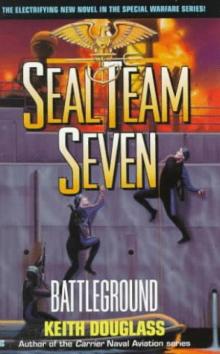 Battleground sts-6
Battleground sts-6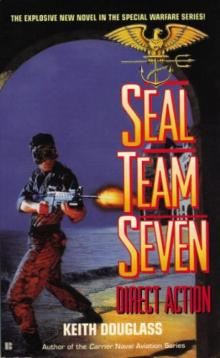 Direct Action sts-4
Direct Action sts-4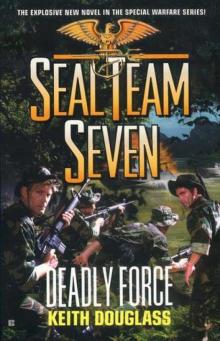 Deadly Force sts-18
Deadly Force sts-18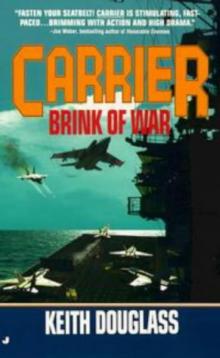 Carrier 13 - Brink of War
Carrier 13 - Brink of War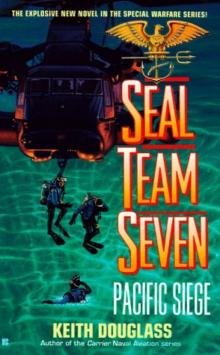 Pacific Siege sts-8
Pacific Siege sts-8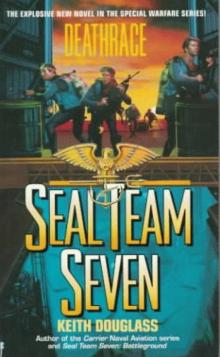 Deathrace sts-7
Deathrace sts-7